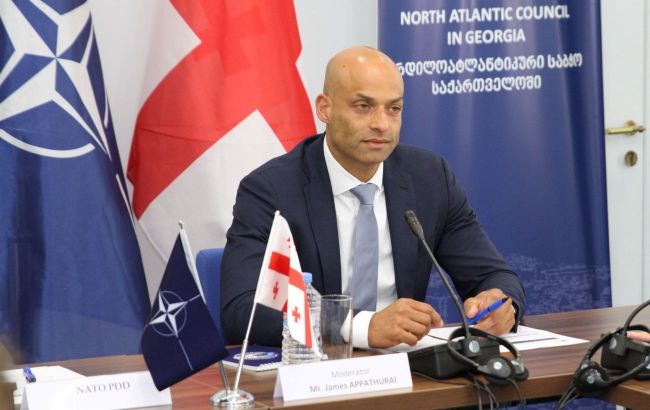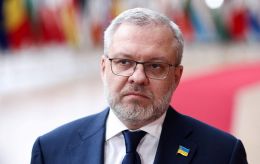NATO warns unconventional Russian attack could cause substantial casualties
 NATO official James Appathurai (photo: flickr.com/nato)
NATO official James Appathurai (photo: flickr.com/nato)
NATO countries face a real threat of unconventional attacks from Russia. Hybrid attacks, such as sabotage or arson, could result in “substantial” losses, says NATO representative James Appathurai, who is working on updating NATO's strategy to track and deter hybrid warfare.
“We are in a boiling frog situation,” he said, adding that Russia's hybrid attacks are reaching a scale that would have been unacceptable five years ago.
According to a senior NATO official, since the beginning of Russia's full-scale invasion of Ukraine, the number of “kinetic” actions by Russia has increased. These include cutting vital submarine cables, sabotage, and planting incendiary devices in airplane cargo. Up to a hundred such cases have been recorded, and many of the acts have been thwarted.
Appathurai notes that the increase in the number of hybrid attacks is the Kremlin's response to Western partners' military support for Ukraine.
“That part's true. So they don't like what we're doing, but also they see us as an enemy. And that's getting worse,” he said.
Asked whether a Russian hybrid attack could cross the line and provoke NATO to use its collective Article 5 response, Appathurai said he was concerned that one of the attacks would “go beyond and become large-scale.”
“So there is a real prospect of one of these attacks causing substantial numbers of casualties or very substantial economic damage,” Appathurai said.
Risks of NATO's war with Russia
President Volodymyr Zelenskyy has previously stated that if Ukraine loses the war, Russia will not stop, and Poland or the Baltic states could be the next victims of the Kremlin. Recently, Newsweek magazine modeled the front line if Russia attacks European countries.
Estonian intelligence also stated that Russia is preparing to start a new war within the next 10 years.
Germany's defense minister did not rule out a possible NATO war with Russia and urged allies to prepare.

